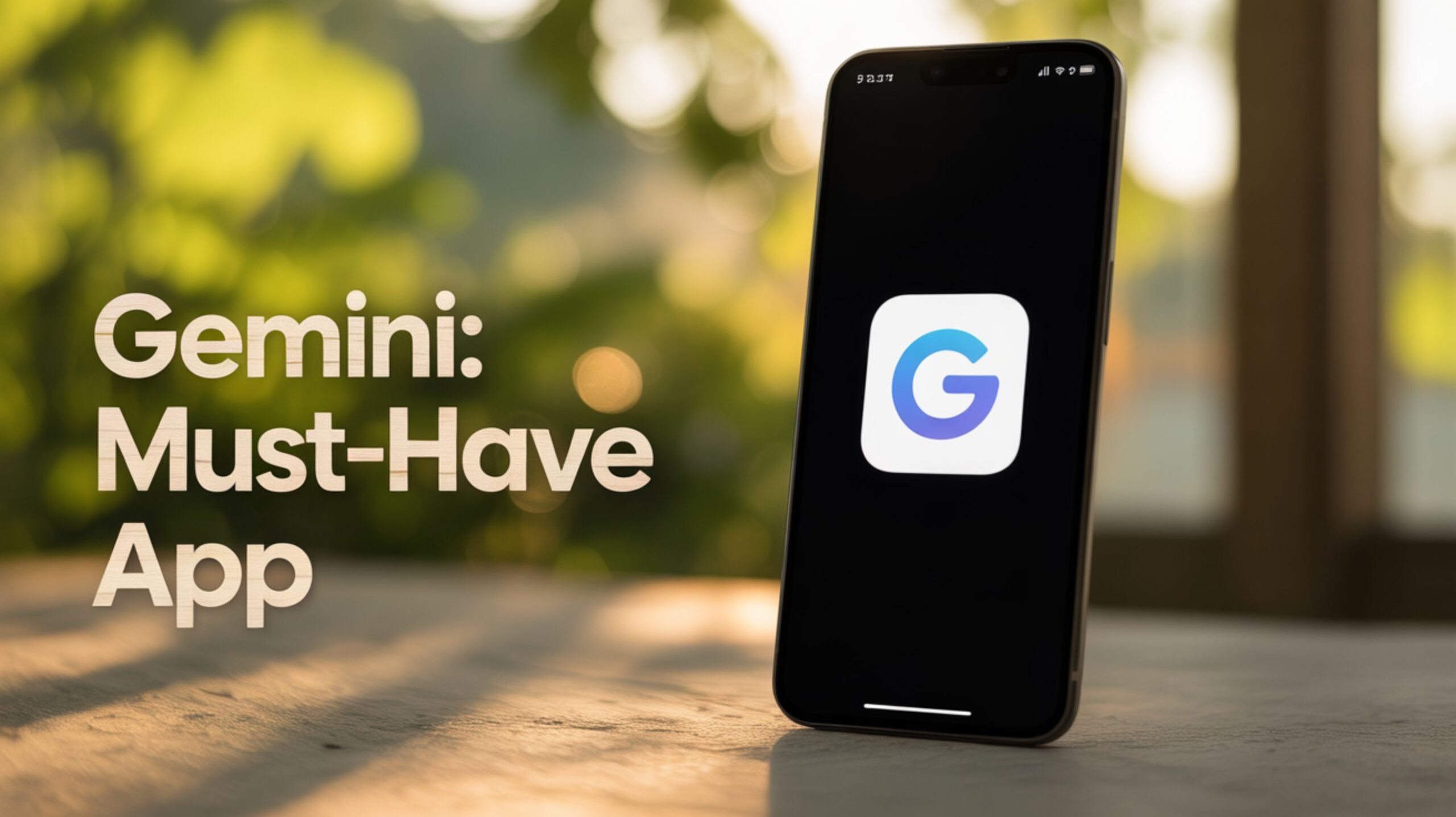Google Gemini is a Must-Have for Android. Google is in the middle of a significant shift on Android devices, migrating from the classic Google Assistant to Gemini, its advanced AI model. While both coexist today, they serve slightly different purposes. Understanding where Gemini shines and where Assistant still leads helps users decide which tool to rely on. We will explore Gemini’s strengths, Assistant’s advantages, and the future of AI on Android.
What Makes Gemini Stand Out on Android?
Gemini is Google’s next-generation AI system, designed to go beyond simple voice commands. Unlike Assistant, which mainly responds to direct requests, Gemini is an on-screen AI companion that integrates deeply with Android 15 and beyond.
1. On-Screen Help and Richer Reasoning
Gemini’s most prominent feature is its ability to overlay any app. This means you can open Gemini while browsing, reading, or working, and get context-aware help. For example:
- Ask Gemini to summarize an article while reading the news.
- Get AI-generated images to insert directly into chats or notes.
- Drag and drop generated content into Gmail, Docs, or Messages.
This is a significant step forward compared to Assistant, which doesn’t offer this multi-app overlay functionality.
2. Advanced App Extensions and Integrations
Gemini is being connected with core Android apps and popular services, including:
- Phone & Messages – draft and send messages automatically.
- WhatsApp – compose replies and schedule texts.
- Calendar & Tasks – set reminders and manage schedules.
- Keep – jot down notes instantly.
- Utilities & Spotify – control music, alarms, and settings.
These integrations show that Google is positioning Gemini as a central AI hub, rather than just a voice assistant.
3. AI-Powered Multitasking and Productivity
Gemini is optimized for research, learning, and content creation. Writers, students, and professionals can rely on Gemini to:
- Generate drafts and emails quickly.
- Provide contextual explanations of what’s on-screen.
- Assist in creative brainstorming and technical workflows.
This makes Gemini especially powerful for those who need in-depth reasoning and creativity.
When Assistant Still Wins Over Gemini
While Gemini is powerful, Google Assistant remains the faster, simpler tool for everyday use.
1. Instant Voice Commands
Assistant’s low-latency voice responses make it superior for tasks like:
- Setting quick timers and alarms.
- Turning bright lights on and off.
- Checking the weather or traffic.
Conversely, Gemini sometimes prioritizes complex reasoning, which can lead to slightly slower replies.
2. Mature Smart-Home Ecosystem
Assistant has been deeply integrated into smart homes for years. It works seamlessly across:
- Google Nest devices
- Smart displays
- Android Auto in cars
- Appliances and smart speakers
Assistant is still the more reliable and widespread choice for users who depend heavily on smart-home control.
On-Device Privacy and Speed with Gemini Nano
Google is introducing Gemini Nano in Android 15, a lightweight, on-device version of Gemini. This ensures certain AI features run locally without sending data to the cloud, providing both:
- Stronger privacy for sensitive data.
- Lower latency for tasks that need speed.
For example, accessibility tools like TalkBack now use Gemini Nano to describe images locally, improving privacy for visually impaired users. This indicates Google’s commitment to private, on-device AI.
Developer and Power-User Benefits of Gemini
Gemini isn’t just for consumers—it also enhances developer productivity.
1. Coding Assistance in Android Studio
Gemini is now integrated into Android Studio, offering:
- Code suggestions for Java, Kotlin, and Compose UI.
- Debugging help for Logcat issues.
- AI-driven test creation through agentic testing flows.
This reduces time spent on repetitive tasks and allows developers to ship apps faster.
2. API and Pro Access
With Gemini 2.5 Pro access, developers can handle 1M-token contexts, which helps build apps with complex reasoning workflows. These features are particularly valuable for startups, enterprises, and technical creators.
Adoption Trend: The Shift Toward Gemini
Google is steadily pushing Gemini across its ecosystem:
- Phones – Gemini is replacing Assistant on most devices.
- Watches – Wear OS now integrates Gemini for contextual replies.
- Cars – Android Auto is seeing Gemini-based suggestions.
- TVs & XR – AI-driven recommendations and controls are expanding.
More users are prompted to switch from Assistant to Gemini daily, showing Google’s clear direction for the future of Android AI.
Assistant’s Role During the Transition
Even though Gemini is expanding, Assistant is not disappearing overnight. Instead, Google is allowing a gradual handover period:
- An assistant remains essential for quick commands.
- Smart-home control still relies heavily on Assistant.
- Gemini adoption is happening first on phones and core apps, before moving completely into other ecosystems.
This transition means users can mix both tools—using Gemini for complex, creative tasks and Assistant for instant actions.
Gemini vs Assistant: Which One Should You Use?
The answer depends on what you prioritize.
- Choose Gemini if you want:
- On-screen contextual help.
- AI-powered reasoning and creativity.
- Advanced app integrations (Messages, WhatsApp, Calendar, etc.).
- Developer-focused tools in Android Studio.
- Stick with Assistant if you need:
- Instant voice responses.
- Stable smart-home control.
- A familiar, simple AI for everyday tasks.
The Future of AI on Android
Gemini is Google’s long-term AI vision. The overlay features, multimodal reasoning, and deep app integrations make it the centerpiece of Android 15 and beyond.
Meanwhile, Google Assistant will continue to exist in a more limited role, primarily supporting voice-first smart-home functions.
For Android users, the best approach is to embrace Gemini for advanced workflows while continuing to use Assistant for fast voice commands.
Wrap Up
Gemini is becoming the default intelligent layer on Android, offering richer reasoning, better app integrations, and productivity-focused features. Assistant, however, still wins in speed and reliability for smart-home controls. The wise choice is not to abandon one for the other but to use them together, leveraging Gemini for complex tasks and Assistant for instant commands.

Selva Ganesh is a Computer Science Engineer, Android Developer, and Tech Enthusiast. As the Chief Editor of this blog, he brings over 10 years of experience in Android development and professional blogging. He has completed multiple courses under the Google News Initiative, enhancing his expertise in digital journalism and content accuracy. Selva also manages Android Infotech, a globally recognized platform known for its practical, solution-focused articles that help users resolve Android-related issues.




Leave a Reply